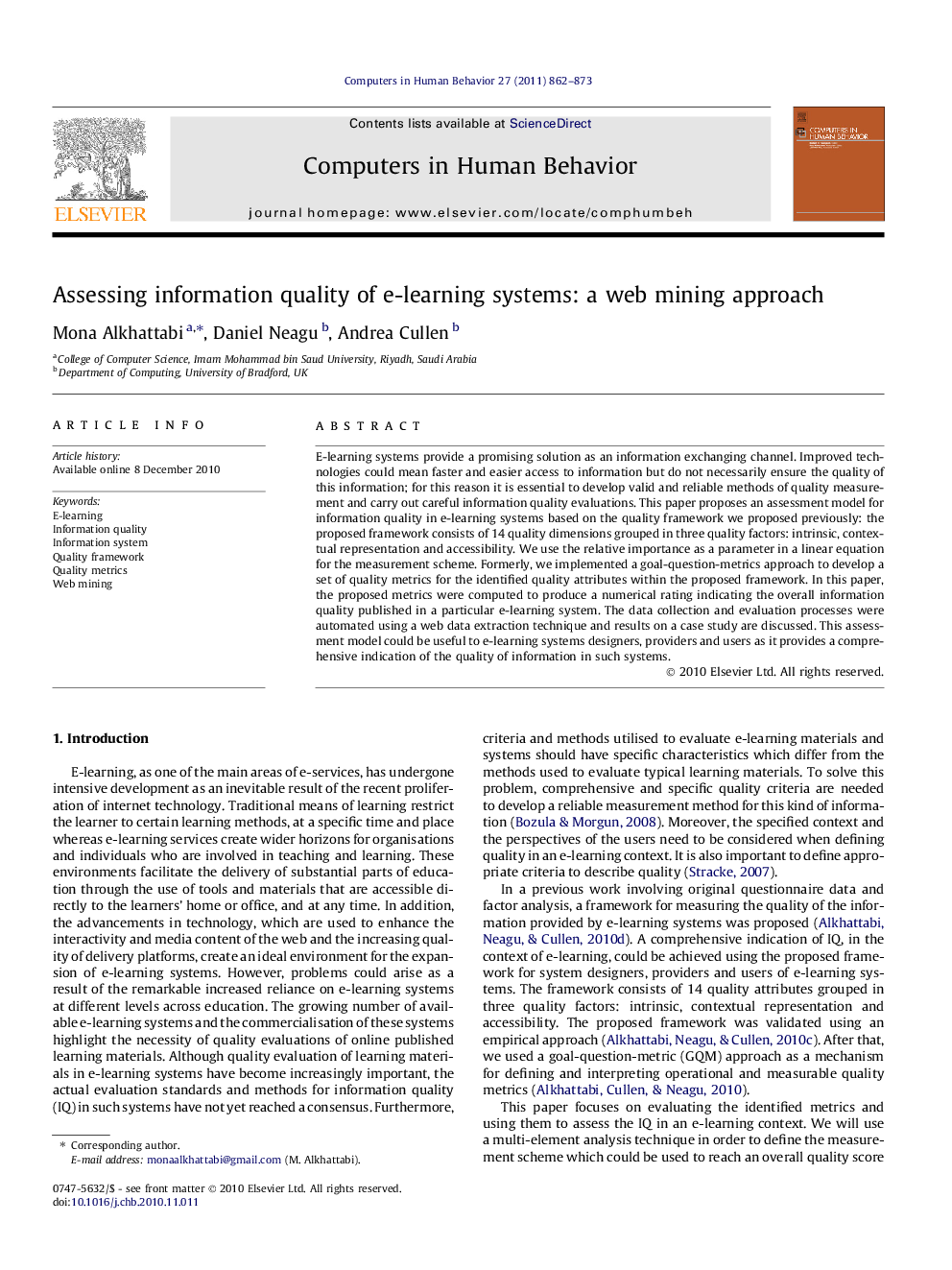| Article ID | Journal | Published Year | Pages | File Type |
|---|---|---|---|---|
| 351860 | Computers in Human Behavior | 2011 | 12 Pages |
Abstract
E-learning systems provide a promising solution as an information exchanging channel. Improved technologies could mean faster and easier access to information but do not necessarily ensure the quality of this information; for this reason it is essential to develop valid and reliable methods of quality measurement and carry out careful information quality evaluations. This paper proposes an assessment model for information quality in e-learning systems based on the quality framework we proposed previously: the proposed framework consists of 14 quality dimensions grouped in three quality factors: intrinsic, contextual representation and accessibility. We use the relative importance as a parameter in a linear equation for the measurement scheme. Formerly, we implemented a goal-question-metrics approach to develop a set of quality metrics for the identified quality attributes within the proposed framework. In this paper, the proposed metrics were computed to produce a numerical rating indicating the overall information quality published in a particular e-learning system. The data collection and evaluation processes were automated using a web data extraction technique and results on a case study are discussed. This assessment model could be useful to e-learning systems designers, providers and users as it provides a comprehensive indication of the quality of information in such systems.
Related Topics
Physical Sciences and Engineering
Computer Science
Computer Science Applications
Authors
Mona Alkhattabi, Daniel Neagu, Andrea Cullen,
